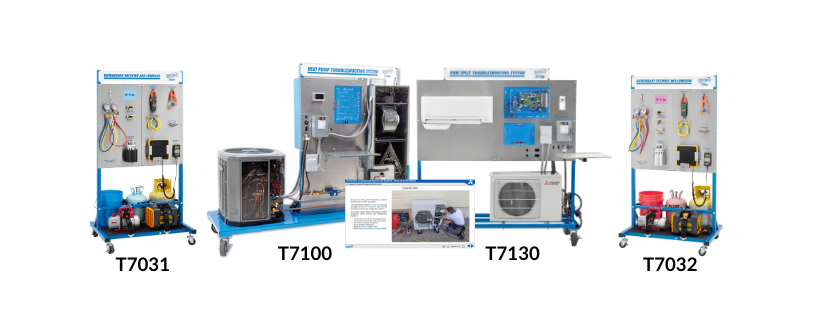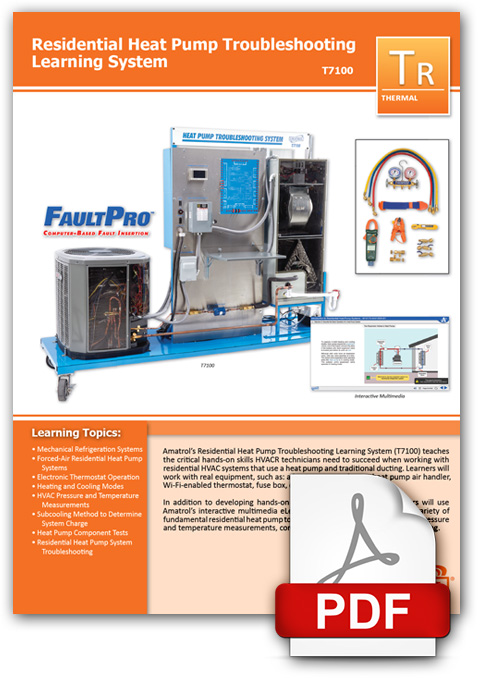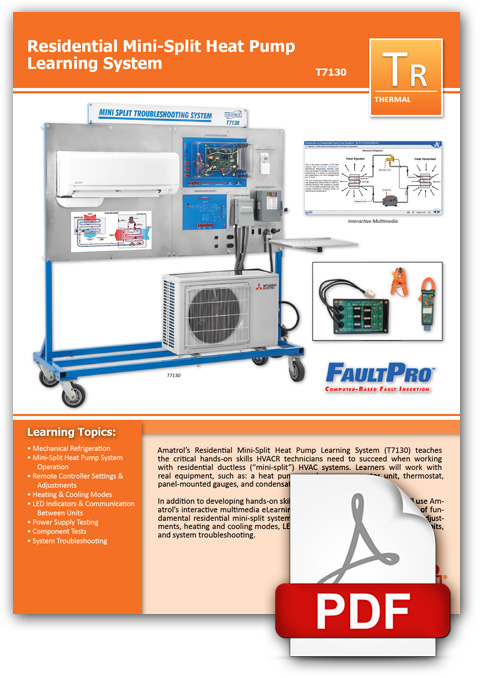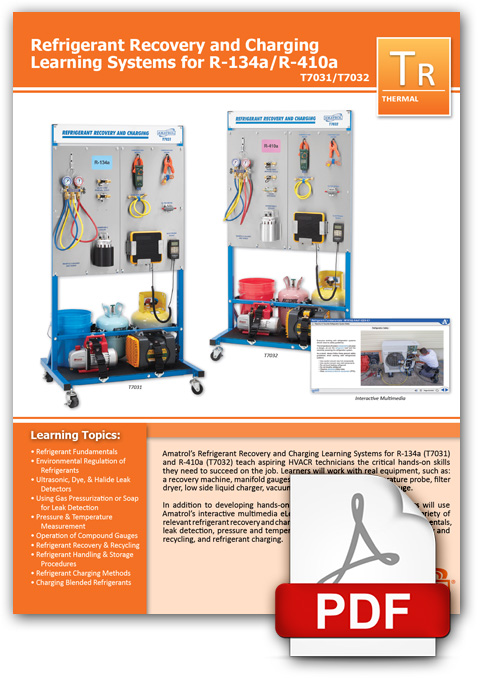Amatrol's Hands-On Training Systems for HVAC Programs


HVAC Skills are in High Demand
According to the U.S. Bureau of Labor Statistics, the demand for HVAC mechanics and installers will grow by 13% through 2028. This is rated as “much faster than average” for all job markets.
Why is there a growing need for HVAC technicians? There are plenty – so we’ll list just a few:
- The market is broad: Nearly every residential, commercial and industrial building has an HVAC system. New construction will always bring new HVAC needs, and existing buildings require maintenance and repair.
- HVAC systems are getting smarter: HVAC technology is evolving at an impressive rate. New smart systems connected to the Internet of Things (IoT) can use data to automatically make adjustments, or individuals can reprogram their systems from a mobile app. It will take a skilled technician to install and maintain these new systems – someone who understands both OT and IT.
- HVAC systems are getting greener: HVAC systems are getting increasingly efficient. As users upgrade their systems, technicians will be needed to install and maintain them.
Amatrol’s HVAC Training Program combines HVAC curriculum with hands-on simulators featuring industry-standard components so that students are prepared for successful HVAC careers. Topics covered include electrical, fluid power, mechanical, electronics, and many more!

Residential Heat Pump Troubleshooting Learning System
T7100
The T7100 is used to teach the critical hands-on skills HVAC/R technicians need to succeed when working with residential HVAC systems that use a heat pump and traditional ducting. Learners will work with real equipment, such as a heat pump condenser, heat pump air handler, Wi-Fi-enabled thermostat, fuse box, ducting, and manifold. In addition to developing hands-on skills with real equipment, learners will use Amatrol’s interactive multimedia eLearning curriculum to cover a wide variety of fundamental residential heat pump topics, including thermostat operation, pressure and temperature measurements, component tests, and system troubleshooting.

Residential Mini-Split Heat Pump Learning System
T7130
The T7130 is used to teach the critical hands-on skills HVAC/R technicians need to succeed when working with residential ductless (“mini-split”) HVAC systems. Learners will work with real equipment, such as a heat pump condenser, evaporator unit, thermostat, panel-mounted gauges, and condensate pump. In addition to developing hands-on skills with real equipment, learners will use Amatrol’s interactive multimedia eLearning curriculum to cover a wide variety of fundamental residential mini-split system topics, including remote controller adjustments, heating, and cooling modes, LED indicators, communication between units, and system troubleshooting.

Refrigerant Recovery and Charging Learning Systems for R-134a/R-410a
T7031/T7032
Teach aspiring HVACR technicians the critical hands-on skills they need to succeed on the job. Learners will work with real equipment, such as a recovery machine, manifold gauges, submersible cooler, temperature probe, filter dryer, low side liquid charger, vacuum pump, and micron vacuum gauge. In addition to developing hands-on skills with real equipment, learners will use Amatrol’s interactive multimedia eLearning curriculum to cover a wide variety of relevant refrigerant recovery and charging topics, including refrigerant fundamentals, leak detection, pressure, and temperature measurement, refrigerant recovery, and recycling, and refrigerant charging.
Train HVAC with eLearning Curriculum
Amatrol’s training systems are paired with a curriculum that teaches the theory and practical knowledge needed to apply HVAC skills in the field. It’s vital that students understand the basic theory of HVAC technology and principles before progressing to working with the hands-on equipment.
Amatrol’s eLearning features interactive, multimedia graphics, videos, and simulations to directly correlate knowledge to job skills. Courses include both pre and post quizzes, plus exercises and knowledge checks within each lesson to ensure the learner is engaged with the content.
Contact Us
If you’d like more information on any of these HVAC training systems, associated curriculum, or want a quote, please fill out the form below and we’ll be in touch shortly.



